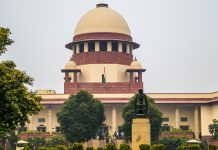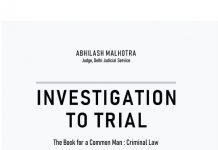No Court shall take cognizance of an offence of Defamation, punishable except upon a complaint made by some person aggrieved by the offence (Sec. 199(1) Crpc). Person aggrieved is to be determined by the courts in each case according to the factual situation. The purpose is to ensure that third parties like friends, relatives or well-wishers do not start litigation in heat of moment or passion, on behalf of the defamed person. It may be possible that the defamed person may condone the actions or show magnanimity.
In Subramanian Swamy vs UOI [(2016) 7 SCC 221] the Supreme Court of India upheld the constitutional validity of Sections 499 and 500 of the Penal Code and Section 199 of the Code of Criminal Procedure i.e. for the offence of Defamation.
Ingredients
To constitute “Defamation” under Section 499 IPC, there must be an imputation and such imputation must have been made with the intention of harming or knowing or having reason to believe that it will harm the reputation of the person about whom it is made.
Publication
The indictment and publication together complete the offence. As a necessary corollary, the place where the act of indictment is made or the place where the publication was done will get jurisdiction.
One of the ingredients of the offence of defamation is that there should be making or publication of any imputation concerning any person. Such imputation may be words either spoken or written. The defamatory matter has to be published. In other words, it has to be communicated to a person other than the person defamed. The word ‘makes’ in Sec. 499 refers to the originator of the defamatory matter. Publication implies communication to at least one person other than the person defamed. In other words, communication must be to a third party, that is, to a party other than the person defamed.
Procedure to file Complaint case
To initiate a case for defamation an aggrieved person needs to file a Complaint Case under Section 200 CrPC before the Concerned Court of Magistrate. The offence of defamation is triable by the Court of Magistrate. Only in cases where a public functionary has been defamed during the discharge of his duties, the complaint is directly filed before the Court of Session by Pubic Prosecutor.
The complaint should give details of the alleged defamatory matter, publication of the matter and disrepute it brought to the complainant.
After filing of the complaint, the complainant is required to lead the Pre-Summoning Evidence under Sec. 200 CrPC. The Complainant needs to examine himself and other witnesses who are acquainted with the facts. The complainant may also request the Court to summon the record which is not in his/her possession. For instance, the Court may summons the record of magazine/newspaper in which defamatory material was published.
After the recording of evidence, if there is prima facie evidence attracting the ingredients of the offence of Defamation, the court may summon the accused person (s) funder Sec. 499/500 IPC to appear and answer the charge. Summons Trail procedure will be followed in this case.















